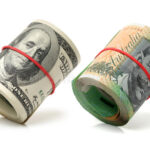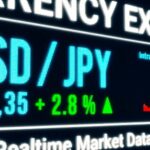VOT Research Desk
Nov 3
Market Analytics and Considerations
Thursday, the Federal Reserve raised concerns about a recession by suggesting that additional rate hikes in the United States are likely to reduce inflation. This led to a decline in global stock markets.
After the Federal Reserve raised its key rate to a 15-year high on Wednesday, Wall Street was followed by lower prices in London, Shanghai, Frankfurt, and Hong Kong. Over $1 per barrel was lost in oil prices.
The fact that the S&P 500 index, which serves as the benchmark for Wall Street, was up less than 1% in the future suggests that some investors were looking to buy at low prices after the benchmark fell 2.5 percent the day before.
For the fourth time this year, the Federal Reserve raised the short-term lending rate on Wednesday by 0.75 percentage points—three times the usual range.
“We have a ways to go,” said Fed Chair Jerome Powell, reinforcing expectations of additional rate hikes. He said that the level that is high enough to lower inflation appears to be higher than it was in September, but he did not specify a target.
According to a report that was provided by James Knightley, Padhraic Garvey, and Chris Turner of ING, “Recession risks are rising, but that is the price the Fed is prepared to pay to get inflation under control.”
The London FTSE 100 lost 0.7% in early trading to 7,097.12. Frankfurt’s DAX fell 0.6 percent to 13,181.97.The Parisian CAC 40 fell 0.8 percent to 6,228.03.
The Dow Jones Industrial Average’s future was up less than 1% on Wall Street.
The Nasdaq composite fell 3.4% and the Dow fell 1.5% on Wednesday.
Retailers, health care companies, and tech stocks were among the biggest losers.
The stock price of Amazon.com. Johnson & Johnson, Inc. and Apple, Inc. both lost 5%.
After the Chinese government failed to confirm a social media rumor that Beijing might begin easing anti-virus controls that have disrupted business, the Hang Seng in Hong Kong fell 3.1% to 15,369.72 in Asia. This resulted in the loss of a significant portion of the gains made the previous day.
The Shanghai Composite Index lost 0.2 percent to 2,997.80, while the S&P-ASX 200 in Sydney lost 1.8 percent to 6,857.90.
During the holiday, Japanese markets were closed.
The Seoul Kospi rose 0.3 percent to 2,329.17. The Sensex in India fell by 0.4% to 60,692.09The majority of Southeast Asian markets and New Zealand also fell.
In order to halt inflation, which is at multi-decade highs, the Federal Reserve and central banks in Europe and Asia have aggressively raised rates this year. Investors are concerned that this could send the world economy into recession.
In September, consumer prices in the United States increased by the same amount as in August compared to the previous year. Core inflation increased from August’s 4.9% to 5.1%, which excludes volatile food and energy prices to show the trend better.
An indicator of market anticipation of Fed action, the yield on the two-year Treasury on Wednesday increased to 4.58 percent from 4.55 percent prior to the Fed’s statement. The 10-year Treasury yield, which is used to set mortgage rates, increased from 3.98 percent to 4.10 percent.
Investors hope that signs of a slowdown in housing sales and other activity will convince Fed officials to ease their plans to raise rates. However, the most recent data, particularly on hiring, are fairly robust, indicating that the Fed may continue to be aggressive.
According to data from payroll processor ADP, businesses added jobs in October at a rate that was higher than anticipated.
Thursday’s unemployment data and Friday’s report on the employment market as a whole were scheduled to be released by the government.
In electronic trading on the New York Mercantile Exchange, benchmark U.S. crude lost $1.51 to $88.49 per barrel in energy markets. On Wednesday, the contract went up $1.63 to $90.In London, Brent crude, which serves as the basis for international oil trading, lost $1.31 to $94.85 per barrel. In the previous session, it increased by $1.51 to $96.16 a barrel.
From 146.94 yen on Wednesday, the dollar increased to 148.11 yen. From 98.83 cents, the euro dropped to 97.70 cents.









